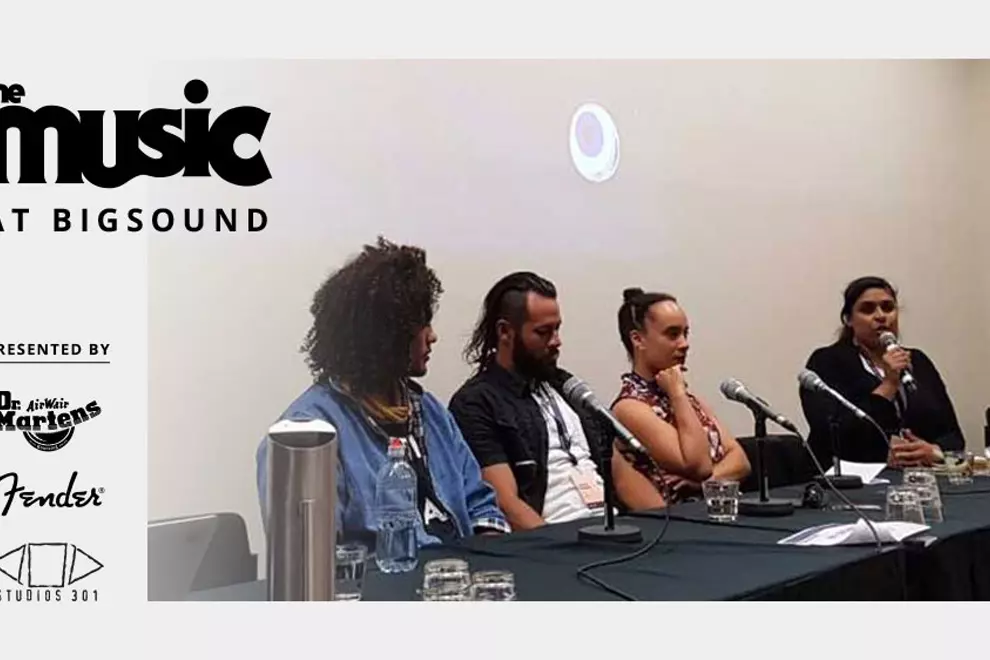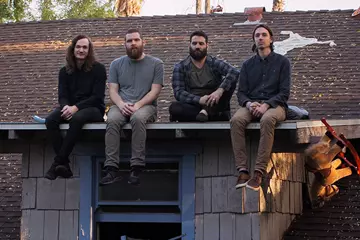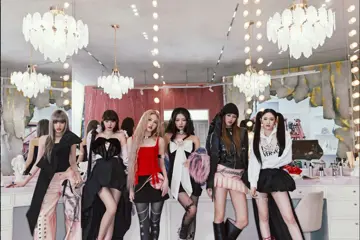Moderated by Rhianna Patrick of ABC Radio, panellists Ziggy Ramo, Jonathan Hermawan (Apakatjah) and Nkechi Anele (Saskwatch) opened up in an emotional, educational and essential discussion on the role of culture, creativity and categorisation in the music industry at BIGSOUND today.
Here are some of the takeaways from the wide-ranging, frequently affecting, conversation, which touched on everything from 'code switching' and tokenism to our national identity crisis, mental health and the road to lay down a more level playing field for the future.
First things first: stop asking about people's ancestry
Indigenous people and people of colour are forced to explain themselves — who they are, where they're from, no, really, where they're really from — in ways that white artists could never imagine, and, aside from being a genuine frustration, it's just downright laborious and fundamentally dehumanising.
"As Indigenous artists and people of colour, you do find yourself having the same conversations over and over again," Ramo observed.
Describing his genealogy as "the United Nations", Hermawan explained how he, like his fellow panellists, has learnt how to 'code-switch' depending on his audience, which brings with it complexities of its own.
Don't miss a beat with our FREE daily newsletter
"They'd call me a 'cultural chameleon', in a derogatory sense," he said, adding: "The consciousness of colour … splitting people into halves, quarters … is something we were taught to divide and conquer our people."
"I get angry about that notion of race — it shouldn't matter, but it does."
"People ask you where you are from, instead of 'hello'," Anele said. "In that situation sometimes it just gets to the stage where I'm like, 'I came from a vagina, where did you come from?'
"I get really fed up with having to explain things over and over again."
There is constant pressure to adhere to ideals of 'cultural' artistry
Given non-Indigenous Australia' obsession with where other people come from, it's disappointing — though unsurprising — that artists of Indigenous and other non-white heritage are often pigeonholed because of their background; and, though their culture inextricably informs their work, it shouldn't be its defining characteristic.
"I never want to be used as an example of that, 'Look at that good Aboriginal boy that can speak white and do white things'," Ramo said.
"Music's been in my blood for 50,000 years; my connection to music goes beyond trying to write a hot 16 bars … the first memory I have of music is hearing the vibration of the clapsticks moving into the earth and then into my feet."
"My music is just an extension of who I am … I think it's really therapeutic," he continued.
"I found myself always questioning if I was feeding into the stereotype of being a black woman playing in a soul band," Anele mused.
"I went through an identity crisis when we travelled to America … I had this culture shock, like, 'I don't stand out, what the hell am I going to do?'" she added.
"We've got to understand, all of us, that identity crisis is not just a black thing; this whole country has an identity issue," Hermawan said. "It's everybody … We're trying to find a sense of national identity, and the answer is in those of us who've been interrogated every day, since we were born, about who we are."
"When it comes to creativity, we're constantly pressured to be cultural," he continued. "It's another way of 'othering' us … it's dehumanising behaviour that continues to put us up on a pedestal or rubbishes us into the floor."
We Need To Abolish The Concept Of 'World Music'
What started several decades ago as a tokenistic attempt to exoticise and 'other' Indigenous and non-white musicians has become embedded as a fixture of award shows, festivals and other events through a grotesque mixture of good intentions and bad practice — and it's time that we move on from that thinking, the panellists said.
"I fucking hate the words 'world music'," Anele said. "The only way I can see it making sense is if we discover another planet … those artists should be playing on stages with everyone else."
"I don't think we'll get it right till we get it right and say, 'There's no such thing as world music'," Hermawan commented.
"As a nation, are we OK with having festivals and putting all the blacks on one stage?" Ramo added. "That's apartheid."
"There's a place to assist in diversifying this nation … but that place cannot be tokenism," he said. "It has to start with non-Indigenous Australia recognising they have an identity crisis."
















